Lionel Messi is the greatest player in the history of Barcelona. 20 years with the club is a time of joy and sorrow, a lot of joy but also a lot of sadness.
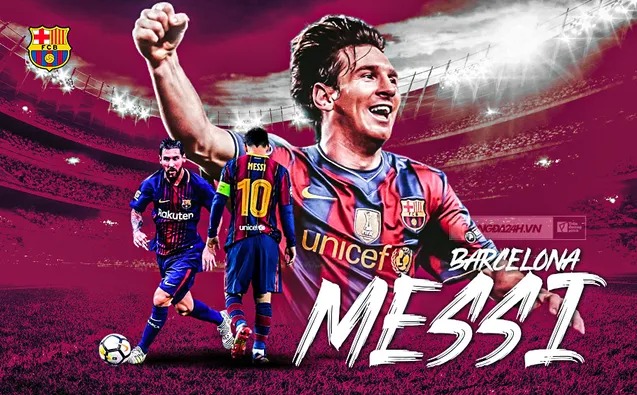
1. “What is my earliest recollection of Lionel Messi?” According to Victor Vazquez, a midfielder for Toronto FC, who was speaking to The Athletic about the incident, “It was probably sitting next to him on the bus to Leon XIII High School in Barcelona.” Vazquez was Messi’s teammate at La Masia beginning when Vazquez was 13 years old, and the two of them rapidly became great friends.
The player continued, saying, “I remember very well, and it felt like it had been yesterday, that we were sitting next to each other and holding a Discman player.” Leo was very enthusiastic as he described his life in Argentina, and his Discman was loaded with cumbia music. He plays them for me all the time, and I also occasionally play some Spanish music for him.
Despite this, the 120 square meter flat in Barcelona that the Messi family called home in the early days of their relocation to Spain was not always a place where laughter could be heard. This apartment can be found on Gran Via Carlos III, and it is only a ten-minute stroll away from both Camp Nou and the historic La Masia. It appeared to be the ideal environment for Messi to become acclimated to the lifestyle of the club, but in reality, it was not.
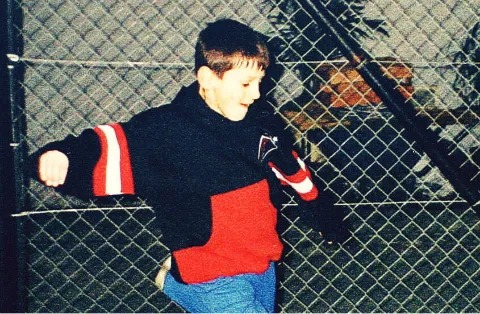
To meet one of the requirements for signing autographs, Lionel Messi was required to frequently lock himself in his room and take the growth hormone injections that Barcelona paid for on his behalf. Messi noticed that his parents were going through a lot of strain as a result of the relocation from Argentina to Spain, particularly his mother Celia, who was having a hard time adjusting to life in Spain. Messi noticed this whenever he left the room. a busy city core located at than 6,000 miles away from home.
At one point, Jorge was forced to inquire with his son about whether or not he desired to go back home, but on that particular day, Messi was absolutely resolved to remain in Barcelona. In the end, they arrived at a decision that was arguably the most beneficial for the entire family: Jorge would remain in Spain with his son, and Celia would go back to Rosario.
Messi, in contrast to his parents, is resourceful and can solve difficulties on his own. “Right from the start, he turned up really strong performances on the field. We, along with other players in the academy like as Gerard Pique and Cesc Fabregas, always discuss his exceptional level of play. “We couldn’t believe how good he was, and the entire locker room agreed that we had to do everything we could to help Leo adjust to life at Barcelona,” said Victor Vazquez. “We had to do everything we could to help Leo adjust to life at Barcelona.”
The Spaniard continued, saying, “At first, he was quite reserved. Before each workout, he would wait quietly in a secluded area of the locker room, and thereafter, he would dash home for a short shower before going to bed. Given the dramatic shifts that have taken place in his life, this is, of course, to be expected. My relationship with Leo is fairly close. On the bus, at school, during practice, or wherever else, you can always find us together, and we frequently listen to music together. In this way, Messi was able to gradually incorporate himself into the team.
After that, Barcelona turned out to be Messi’s permanent residence.
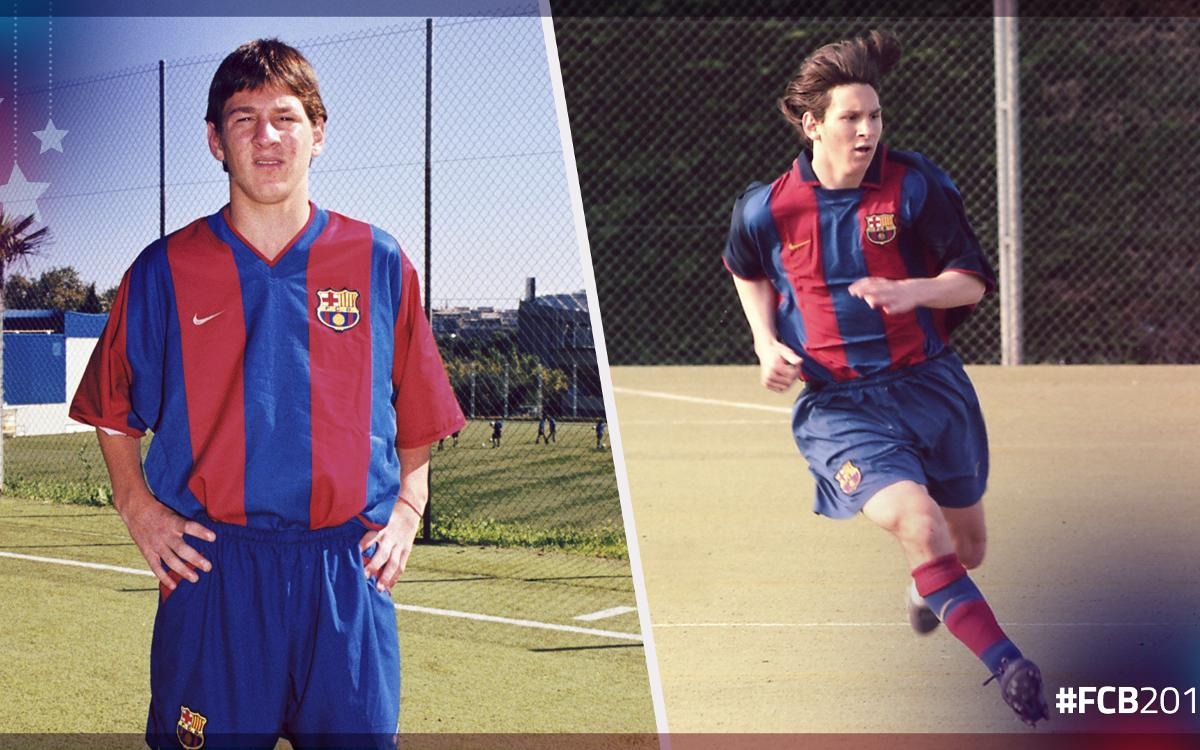
2. Putting his family issues on hold for the time being, Messi has come to the conclusion that Barcelona is the ideal location for him to pursue his goal of being a famous football player. It didn’t take him long to work his way up through the club’s junior teams. The Argentinian played for the U16 team for the first time last year and scored 38 goals in 31 matches during that season.
Messi is getting to the point where competing against youngsters his own age is no longer a challenge for him. As a result, Barcelona moved Lionel Messi up from the Under-16 team to the Under-18 team for the 2003/2004 season. However, he did not remain there for an extended period of time. Messi was promoted to the U19 team once again after playing for the U18 team in three matches. There, the teenage Argentine striker effortlessly overcame the opposition, which caught the attention of the first team’s coach, Frank Rijkaard.
Rijkaard invited Messi to play for the first team in a friendly match against Porto, which was coached by Jose Mourinho, in November of 2003. After coming off the bench for the final 15 minutes of the game, the Argentine made quite an impression. Since then, Messi has never gone back to the academy; instead, he played for Barcelona’s B and C teams for the remainder of the season. within this time, he also established a record that has not yet been surpassed by anyone else: playing for five different Barcelona clubs within the course of only one season.
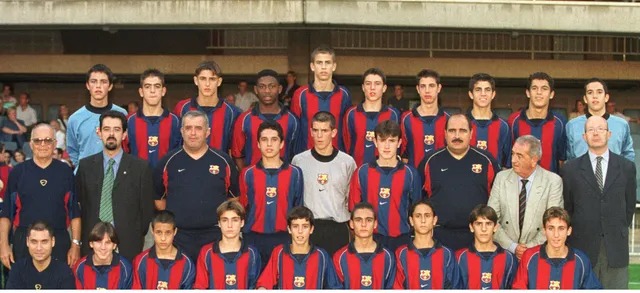
In the 2004/2005 season, Messi played full-time for Barcelona B, but again he was not there for too long. On October 16, 2004, Messi made his first official match for the Barcelona first team at the age of 17 years, 3 months and 22 days when he came on as a substitute in a match against Espanyol in the framework of La Liga.
That season, Messi played for the first team for eight more games, scoring his first goal for the club in the last minute of the season with a lob against Albacete at the Camp Nou. In addition, he also played for Barcelona 17 matches in the third division and scored 6 goals.
Pere Gratacos – Barcelona B coach at the time – recalled: “I remember quite well the last game of that season, we beat Osasuna 4-0 and Messi was really classy. I threw Messi on the pitch in the 87th minute so the audience could stand up and give him a round of applause. I know he won’t come back to us again and he deserves to say goodbye to Mini Estadi (Barca B’s former home ground).”
Right from that moment, Messi started to have the aura of superstardom, even if he didn’t know it.
“Even after starting to play for the first team, Leo still spends Saturday mornings every week if possible at the academy, watching the under-18s and under-19s play. He knows most of us. The people he used to play with are still there and he wants to know how we are training and playing. He doesn’t forget people. I think it’s his closeness that helps him through difficult times. Later, when Messi became a superstar it was over, but that was when he couldn’t live a normal life anymore, he couldn’t comfortably walk around Barcelona and visit old friends. His life needs to change,” Vazquez said.
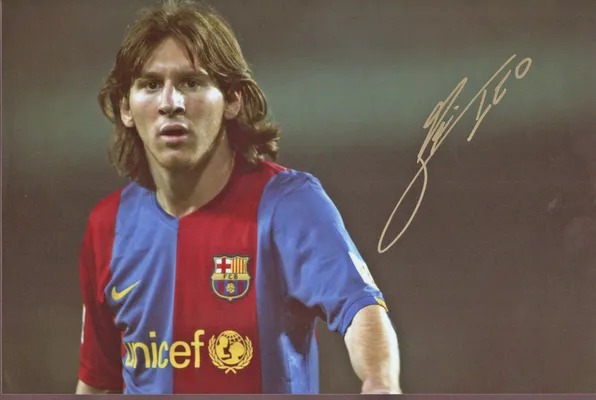
3. Messi’s life began to change as soon as he won the title of the best player in the U20 World Cup 2005, the tournament that Argentina won. A few weeks later, he shone in the Joan Gamper pre-season friendly when Barcelona faced Fabio Capello’s Juventus. Messi was withdrawn 10 minutes before the final whistle at the Camp Nou sounded, and in the stands were chants of “Messi, Messi, Messi”. It will become a familiar sound for the next 16 years at Camp Nou.
That match, Messi tormented the experienced faces of Juventus such as Gianluca Pessotto, Fabio Cannavaro, Jonathan Zebina, Giuliano Giannichedda with his agility and ingenuity. He made 3 Juventus players foul and created 1 goal for Andres Iniesta. The final score of the match was 2-2 but that’s not what people remember about this epic battle.
“I’ve never seen a player with such great potential at that age as Messi,” Capello said after the game. Even during the match, the Italian strategist asked Rijkaard to take Messi to Juventus on loan in the new season but was refused. Meanwhile, El Pais newspaper wrote after the match: “It is a sin to think that Messi cannot have a place in this Barcelona squad.”
His first full season as a first-team player ended up being quite impressive: 25 appearances, eight goals, five assists and Barca’s second consecutive La Liga title. Messi’s season ended after he injured his hamstring in the Champions League semi-final second leg and was forced to miss the final against Arsenal. Messi believes he is fit enough to play, but coach Rijkaard does not want to take the risk. The young Argentine was reportedly furious and reluctant to celebrate on the pitch after Barca’s 2-1 win. Still, it was a really good time for Messi at Barcelona. The team at that time gathered world-class stars like Ronaldinho, Eto’o, Xavi, Deco, Carles Puyol and they welcomed him with open arms.
In particular, Deco and Ronaldinho are close teammates with Messi, especially Ronaldinho is like the brother of an 18-year-old young star. The Brazilian player sees himself in Messi. It was Ronaldinho who advised Messi to move to Castelldefels, a suburb southwest of Barcelona. Messi bought his first house there, in the same neighborhood as Ronaldinho.
“Sometimes I go to his house to pick him up for a drink or we stay at home playing video games,” Messi said in 2007.

4. Back on the pitch, winning the 2006 Champions League was the beginning of the end of an era. While Messi continued to improve through each season, within the team began to appear disturbances related to the attitudes of some stars such as partying all night, going to training late, prominent among them are: Ronaldinho.
The club’s management began to wonder when it felt that the club’s standards were starting to drop, with many worried whether Messi, Ronaldinho’s younger brother, might go astray. The club know that Messi often hangs out with Ronaldinho and his group of friends, so they need to get the young talent back on track.
In 2008, Frank Rijkaard was fired, and that was the basis for the biggest turning point for both Messi and Barcelona: the appointment of Pep Guardiola. The team’s force lineup also had a big change, the first thing being the removal of big personalities in the team like Ronaldinho and Deco.
Besides the departure of stars, Guardiola ensures Messi will be at the center of his project. He inherited Ronaldinho’s number 10 shirt and Guardiola allowed him to participate in the 2008 Olympics while Barcelona were in pre-season preparations. It was like an act of showing goodwill towards the new star of the team.
And the rest is history: Barcelona became a great champion with a treble and outstanding football, Messi exploded and became the inspiration of that group. The Messi brand and the Barcelona brand are famous around the world.
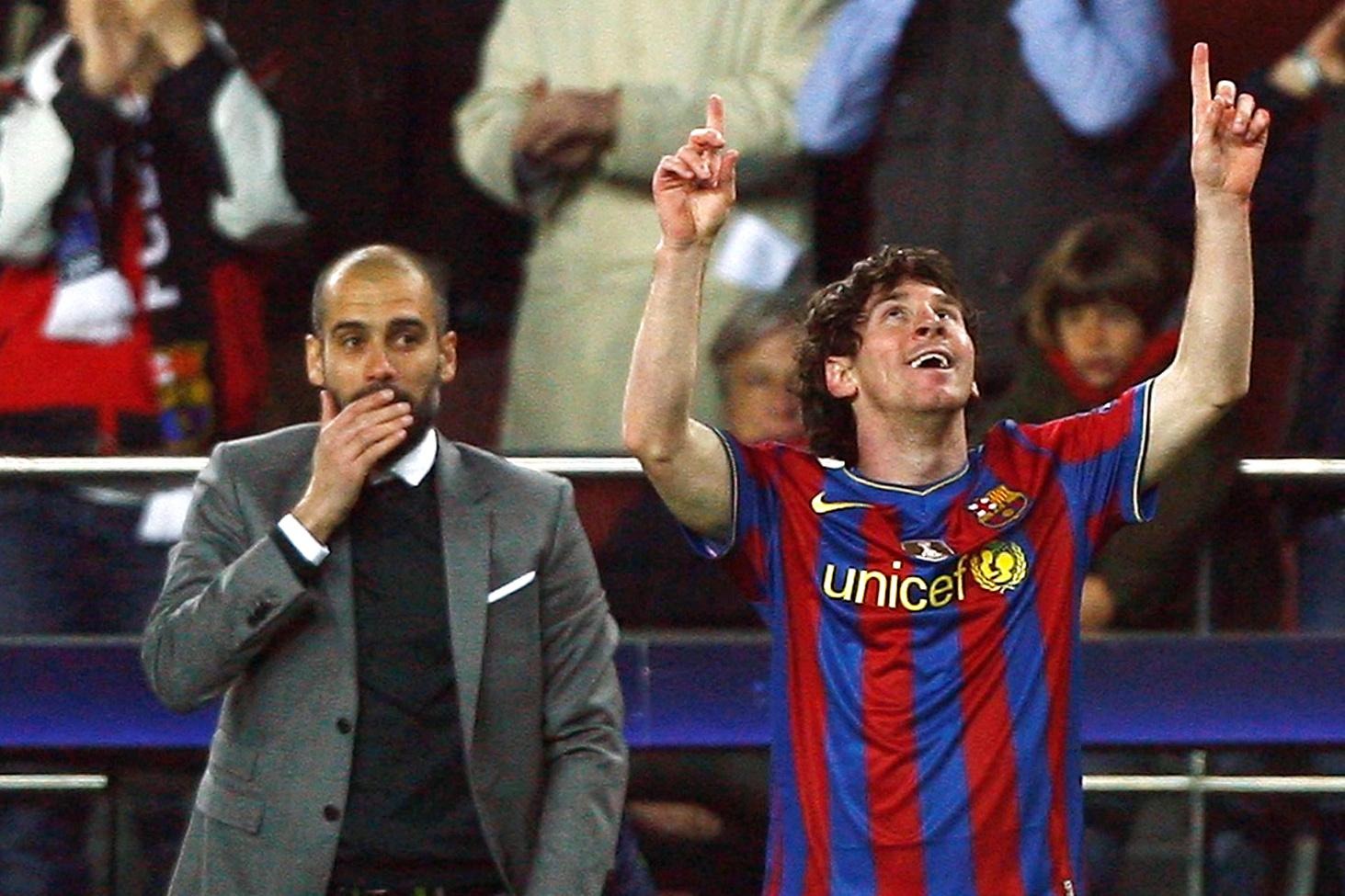
At the end of the 2008/2009 season, Messi scored a total of 38 goals, 19 assists in 51 matches and won the first Golden Ball title in his career. Messi’s scoring record in the 2008/2009 season is truly outstanding for a player who doesn’t even play as a true striker. What is amazing, however, is that he maintained his monstrous scoring form for the next 10 seasons. Messi almost becomes a football machine in constant operation. He not only has unparalleled talent but also possesses a relentless competitive spirit and does not let the coach give him a day off.
5. In 2010, he won his second Champions League and Ballon d’Or, but behind the scenes Barcelona began to change. That summer, Sandro Rosell was elected club president after ousting Guardiola’s longtime ally Joan Laporta. Barcelona ended its shirt sponsorship partnership with the United Nations Children’s Fund (UNICEF) and replaced it with the Qatar Foundation, a controversial human rights organization.
Meanwhile, Rosell and the legendary Johan Cruyff had a big conflict. The Dutch legend has always been considered a close friend of Laporta and Rosell did not like Cruyff’s overwhelming influence at the club. Cruyff even gave up his honorary presidency of the club right after Rosell was elected. And a year later, Guardiola decided to leave the club after his contract expired.
Since then Barcelona entered an era of instability on the coaching bench. They appointed new coaches for three consecutive summers. The only thing that calms the chaos is Messi’s excellent form. As the club became increasingly disoriented, Messi had to step in to pull the ship forward, and he gradually fell in love with the role and the power it brought him.
Coach Tata Martino’s sharing with Messi is perhaps the greatest proof of that: “I know if you call the president and ask to fire me, the next day I will lose my job. But please, I don’t need you to prove it to me every day.” These words were revealed by former Sports Director Andoni Zubizarreta in an interview with El Pais newspaper in 2020. And it was not the last time Messi showed his power.
The first week of 2015, the players returned to the club after the Christmas break and Messi and Neymar were allowed to join the army a few days later, meaning they did not attend 2 training sessions. Then, in the first match of 2015, the encounter with Real Sociedad, coach Luis Enrique decided to leave the latter two on the bench. As a result, Barca lost 0-1.
With the dressing room already restless, the summer signings unsatisfactory and the team chasing Real Madrid’s number one spot, this result increases tensions. The next day, things got worse. In Barcelona’s open training session for fans to watch, Messi was absent. As the captain, Xavi was forced to negotiate between Messi and the head coach.
In the chaos, President Josep Bartomeu used Zubizarreta as a scapegoat and fired him, citing “the noise around the club”. Finally, that season Barcelona won the treble when the attacking trio of Luis Suarez, Neymar and Messi showed destructive form when scoring 122 goals.
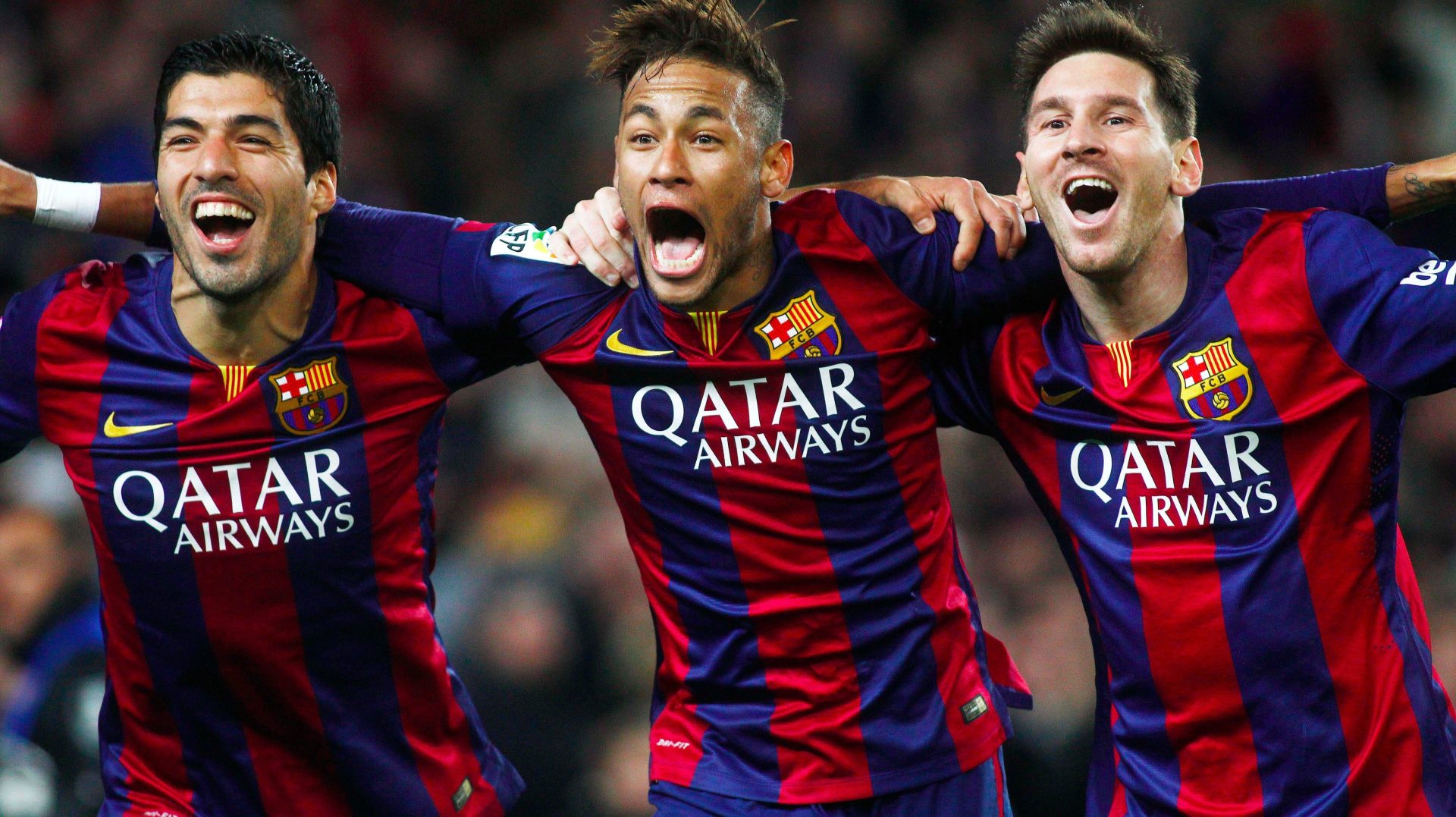
6. It is difficult to overestimate the influence of Lionel Messi at the club and the city of Barcelona. He can attract hundreds of thousands of fans around the world to Camp Nou. In Barcelona, Messi is not only a football idol but also a pop culture icon.
The walls of the city are dotted with his image. There are bars named after him, shops and restaurants that use his iconic moments to decorate. According to Catalan government data for 2021, Leo is the 5th most used name for babies here and the only name in the top 6 common names that do not originate from Catalunya.
Meanwhile, the later phase of Messi’s career at Barcelona was marked by setbacks in Europe and growing conflicts with the club’s leadership. In 2020, after being too tired with the management of the leadership, the Argentine superstar sent a burofax to the club to express his desire to leave freely according to a clause in the contract. At that time, Pep Guardiola of Man City was very eager to reunite the old student. However, Bartomeu did not want to be remembered as “the president who lost Messi”, so he informed El Pulga that the clause he mentioned was no longer valid.

Messi is reluctant to stay at the club, while fans resent Bartomeu for allowing the relationship between the club and their No. 1 star to fall apart. Joan Laporta’s re-election in March 2021 seemed like the perfect opportunity for Messi to reconnect with the club. Laporta is known for his ability to bond with players and control the dressing room. Things were going pretty well at first: Barcelona won the Copa del Rey and then Messi himself expressed his decision to stay.
Barcelona have been preparing for a difficult summer related to financial barriers, but he and his associates on the board have reached an agreement in principle with Messi on a new contract, including El Pulga. will receive about 20 million euros in the first season and the salary will increase gradually.
But soon after his family returned to Barcelona from the Copa America and summer break, they realized things were not going as expected. The club’s leadership decided not to sign a new contract with the Argentine superstar because they simply could not keep Messi while ensuring compliance with financial rules.

After two decades, Messi left Barcelona with tears in his eyes during his farewell press conference. This is like a big scar to fans when their savior, idol, hero suddenly disappeared. However, a return date of El Pulga is possible in the future. As he shared in an interview with Mundo Deportivo in June: “I want to return to the club one day. I don’t know when or how but hopefully I can help the club in the future because this is still the team I love. What is certain is that we will live in Barcleona. My family has made such a decision and will do it sooner or later.”
If we could go back in time, maybe we should tell the shy 13-year-old, holding a Discman and listening to cumbia music on the way to school that after 21 years, Barcelona will be the home he feels most comfortable in.